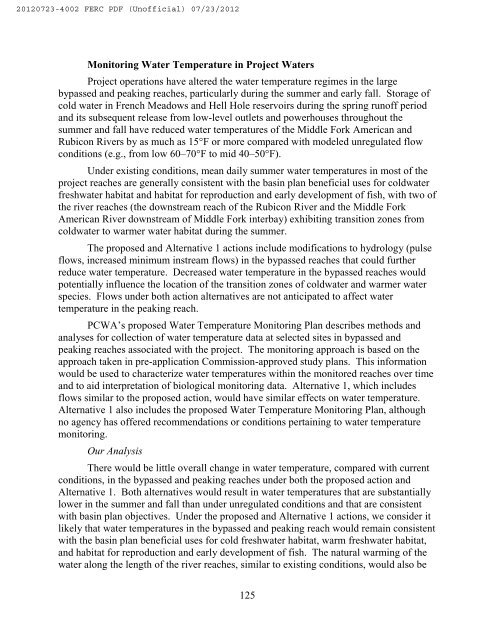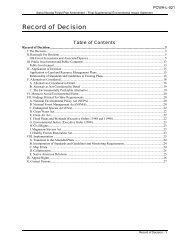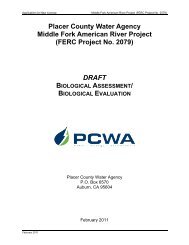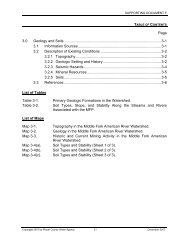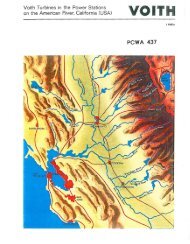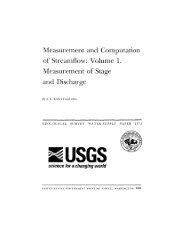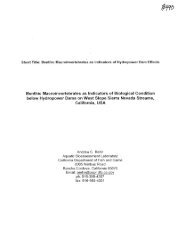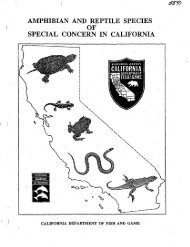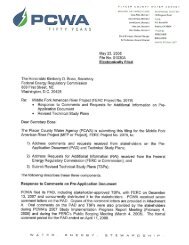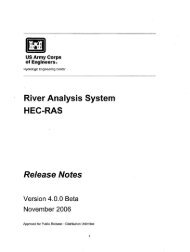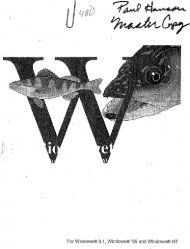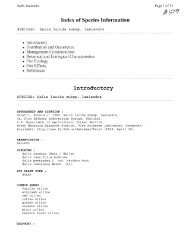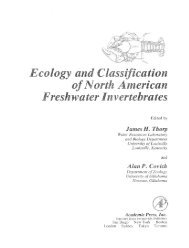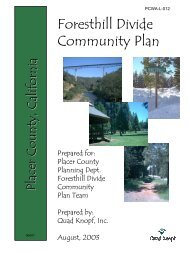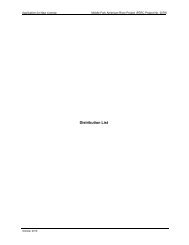- Page 1 and 2:
20120723-4002 FERC PDF (Unofficial)
- Page 3 and 4:
20120723-4002 FERC PDF (Unofficial)
- Page 5 and 6:
20120723-4002 FERC PDF (Unofficial)
- Page 7 and 8:
20120723-4002 FERC PDF (Unofficial)
- Page 9 and 10:
20120723-4002 FERC PDF (Unofficial)
- Page 11 and 12:
20120723-4002 FERC PDF (Unofficial)
- Page 13 and 14:
20120723-4002 FERC PDF (Unofficial)
- Page 15 and 16:
20120723-4002 FERC PDF (Unofficial)
- Page 17 and 18:
20120723-4002 FERC PDF (Unofficial)
- Page 19 and 20:
20120723-4002 FERC PDF (Unofficial)
- Page 21 and 22:
20120723-4002 FERC PDF (Unofficial)
- Page 23 and 24:
20120723-4002 FERC PDF (Unofficial)
- Page 25 and 26:
20120723-4002 FERC PDF (Unofficial)
- Page 27 and 28:
20120723-4002 FERC PDF (Unofficial)
- Page 29 and 30:
20120723-4002 FERC PDF (Unofficial)
- Page 31 and 32:
20120723-4002 FERC PDF (Unofficial)
- Page 33 and 34:
20120723-4002 FERC PDF (Unofficial)
- Page 35 and 36:
20120723-4002 FERC PDF (Unofficial)
- Page 37 and 38:
20120723-4002 FERC PDF (Unofficial)
- Page 39 and 40:
20120723-4002 FERC PDF (Unofficial)
- Page 41 and 42:
20120723-4002 FERC PDF (Unofficial)
- Page 43 and 44:
20120723-4002 FERC PDF (Unofficial)
- Page 45 and 46:
20120723-4002 FERC PDF (Unofficial)
- Page 47 and 48:
20120723-4002 FERC PDF (Unofficial)
- Page 49 and 50:
20120723-4002 FERC PDF (Unofficial)
- Page 51 and 52:
20120723-4002 FERC PDF (Unofficial)
- Page 53 and 54:
20120723-4002 FERC PDF (Unofficial)
- Page 55 and 56:
20120723-4002 FERC PDF (Unofficial)
- Page 57 and 58:
20120723-4002 FERC PDF (Unofficial)
- Page 59 and 60:
20120723-4002 FERC PDF (Unofficial)
- Page 61 and 62:
20120723-4002 FERC PDF (Unofficial)
- Page 63 and 64:
20120723-4002 FERC PDF (Unofficial)
- Page 65 and 66:
20120723-4002 FERC PDF (Unofficial)
- Page 67 and 68:
20120723-4002 FERC PDF (Unofficial)
- Page 69 and 70:
20120723-4002 FERC PDF (Unofficial)
- Page 71 and 72:
41 Table 3.3.1-1. Average number of
- Page 73 and 74:
43 Site/Release Location Gravel Ini
- Page 75 and 76:
45 a Q 1 - TSR, Table G-1 (PCWA, 20
- Page 77 and 78:
20120723-4002 FERC PDF (Unofficial)
- Page 79 and 80:
20120723-4002 FERC PDF (Unofficial)
- Page 81 and 82:
20120723-4002 FERC PDF (Unofficial)
- Page 83 and 84:
20120723-4002 FERC PDF (Unofficial)
- Page 85 and 86:
20120723-4002 FERC PDF (Unofficial)
- Page 87 and 88:
20120723-4002 FERC PDF (Unofficial)
- Page 89 and 90:
20120723-4002 FERC PDF (Unofficial)
- Page 91 and 92:
20120723-4002 FERC PDF (Unofficial)
- Page 93 and 94:
20120723-4002 FERC PDF (Unofficial)
- Page 95 and 96:
20120723-4002 FERC PDF (Unofficial)
- Page 97 and 98:
20120723-4002 FERC PDF (Unofficial)
- Page 99 and 100:
69 Table 3.3.2-3. Hydrology for sel
- Page 101 and 102:
71 Exceedances and Summary Statisti
- Page 103 and 104: 73 Exceedances and Summary Statisti
- Page 105 and 106: 20120723-4002 FERC PDF (Unofficial)
- Page 107 and 108: 20120723-4002 FERC PDF (Unofficial)
- Page 109 and 110: 79 Exceedances and Summary Statisti
- Page 111 and 112: 20120723-4002 FERC PDF (Unofficial)
- Page 113 and 114: 20120723-4002 FERC PDF (Unofficial)
- Page 115 and 116: 20120723-4002 FERC PDF (Unofficial)
- Page 117 and 118: 20120723-4002 FERC PDF (Unofficial)
- Page 119 and 120: 20120723-4002 FERC PDF (Unofficial)
- Page 121 and 122: 91 Figure 3.3.2-6. Fish passage bar
- Page 123 and 124: 20120723-4002 FERC PDF (Unofficial)
- Page 125 and 126: 20120723-4002 FERC PDF (Unofficial)
- Page 127 and 128: 20120723-4002 FERC PDF (Unofficial)
- Page 129 and 130: 20120723-4002 FERC PDF (Unofficial)
- Page 131 and 132: 20120723-4002 FERC PDF (Unofficial)
- Page 133 and 134: 20120723-4002 FERC PDF (Unofficial)
- Page 135 and 136: 105 Location American River below M
- Page 137 and 138: 20120723-4002 FERC PDF (Unofficial)
- Page 139 and 140: 20120723-4002 FERC PDF (Unofficial)
- Page 141 and 142: 20120723-4002 FERC PDF (Unofficial)
- Page 143 and 144: 20120723-4002 FERC PDF (Unofficial)
- Page 145 and 146: 20120723-4002 FERC PDF (Unofficial)
- Page 147 and 148: 20120723-4002 FERC PDF (Unofficial)
- Page 149 and 150: 20120723-4002 FERC PDF (Unofficial)
- Page 151 and 152: 20120723-4002 FERC PDF (Unofficial)
- Page 153: 20120723-4002 FERC PDF (Unofficial)
- Page 157 and 158: 20120723-4002 FERC PDF (Unofficial)
- Page 159 and 160: 20120723-4002 FERC PDF (Unofficial)
- Page 161 and 162: 20120723-4002 FERC PDF (Unofficial)
- Page 163 and 164: 20120723-4002 FERC PDF (Unofficial)
- Page 165 and 166: 135 Species Name Status a Butte Cou
- Page 167 and 168: 20120723-4002 FERC PDF (Unofficial)
- Page 169 and 170: 20120723-4002 FERC PDF (Unofficial)
- Page 171 and 172: 20120723-4002 FERC PDF (Unofficial)
- Page 173 and 174: 20120723-4002 FERC PDF (Unofficial)
- Page 175 and 176: 145 Table 3.3.3-5. Special-status w
- Page 177 and 178: 147 Species Name Status Habitat Occ
- Page 179 and 180: 149 Species Name Status Habitat Occ
- Page 181 and 182: 151 Species Name Status Habitat Occ
- Page 183 and 184: 153 Species Name Status Habitat Occ
- Page 185 and 186: 155 Species Name Status Habitat Occ
- Page 187 and 188: 157 Species Name Status Habitat Occ
- Page 189 and 190: 159 Species Name Status Habitat Occ
- Page 191 and 192: 161 Species Name Status Habitat Occ
- Page 193 and 194: 20120723-4002 FERC PDF (Unofficial)
- Page 195 and 196: 20120723-4002 FERC PDF (Unofficial)
- Page 197 and 198: 20120723-4002 FERC PDF (Unofficial)
- Page 199 and 200: 20120723-4002 FERC PDF (Unofficial)
- Page 201 and 202: 20120723-4002 FERC PDF (Unofficial)
- Page 203 and 204: 20120723-4002 FERC PDF (Unofficial)
- Page 205 and 206:
20120723-4002 FERC PDF (Unofficial)
- Page 207 and 208:
20120723-4002 FERC PDF (Unofficial)
- Page 209 and 210:
20120723-4002 FERC PDF (Unofficial)
- Page 211 and 212:
20120723-4002 FERC PDF (Unofficial)
- Page 213 and 214:
20120723-4002 FERC PDF (Unofficial)
- Page 215 and 216:
20120723-4002 FERC PDF (Unofficial)
- Page 217 and 218:
20120723-4002 FERC PDF (Unofficial)
- Page 219 and 220:
20120723-4002 FERC PDF (Unofficial)
- Page 221 and 222:
20120723-4002 FERC PDF (Unofficial)
- Page 223 and 224:
20120723-4002 FERC PDF (Unofficial)
- Page 225 and 226:
195 Figure 3.3.5-1. French Meadows
- Page 227 and 228:
197 Figure 3.3.5-3. Long Canyon, re
- Page 229 and 230:
20120723-4002 FERC PDF (Unofficial)
- Page 231 and 232:
20120723-4002 FERC PDF (Unofficial)
- Page 233 and 234:
20120723-4002 FERC PDF (Unofficial)
- Page 235 and 236:
20120723-4002 FERC PDF (Unofficial)
- Page 237 and 238:
20120723-4002 FERC PDF (Unofficial)
- Page 239 and 240:
20120723-4002 FERC PDF (Unofficial)
- Page 241 and 242:
20120723-4002 FERC PDF (Unofficial)
- Page 243 and 244:
20120723-4002 FERC PDF (Unofficial)
- Page 245 and 246:
20120723-4002 FERC PDF (Unofficial)
- Page 247 and 248:
20120723-4002 FERC PDF (Unofficial)
- Page 249 and 250:
20120723-4002 FERC PDF (Unofficial)
- Page 251 and 252:
20120723-4002 FERC PDF (Unofficial)
- Page 253 and 254:
20120723-4002 FERC PDF (Unofficial)
- Page 255 and 256:
20120723-4002 FERC PDF (Unofficial)
- Page 257 and 258:
20120723-4002 FERC PDF (Unofficial)
- Page 259 and 260:
20120723-4002 FERC PDF (Unofficial)
- Page 261 and 262:
20120723-4002 FERC PDF (Unofficial)
- Page 263 and 264:
20120723-4002 FERC PDF (Unofficial)
- Page 265 and 266:
20120723-4002 FERC PDF (Unofficial)
- Page 267 and 268:
20120723-4002 FERC PDF (Unofficial)
- Page 269 and 270:
20120723-4002 FERC PDF (Unofficial)
- Page 271 and 272:
20120723-4002 FERC PDF (Unofficial)
- Page 273 and 274:
20120723-4002 FERC PDF (Unofficial)
- Page 275 and 276:
20120723-4002 FERC PDF (Unofficial)
- Page 277 and 278:
20120723-4002 FERC PDF (Unofficial)
- Page 279 and 280:
20120723-4002 FERC PDF (Unofficial)
- Page 281 and 282:
20120723-4002 FERC PDF (Unofficial)
- Page 283 and 284:
253 Table 3.3.6-1. Archaeological a
- Page 285 and 286:
255 Resource Number Type a Descript
- Page 287 and 288:
257 Resource Number Type a Descript
- Page 289 and 290:
259 Resource Number Type a Descript
- Page 291 and 292:
20120723-4002 FERC PDF (Unofficial)
- Page 293 and 294:
20120723-4002 FERC PDF (Unofficial)
- Page 295 and 296:
20120723-4002 FERC PDF (Unofficial)
- Page 297 and 298:
20120723-4002 FERC PDF (Unofficial)
- Page 299 and 300:
20120723-4002 FERC PDF (Unofficial)
- Page 301 and 302:
20120723-4002 FERC PDF (Unofficial)
- Page 303 and 304:
20120723-4002 FERC PDF (Unofficial)
- Page 305 and 306:
275 Table 4-2. Summary of annual co
- Page 307 and 308:
20120723-4002 FERC PDF (Unofficial)
- Page 309 and 310:
279 Enhancement/Mitigation Measures
- Page 311 and 312:
281 Enhancement/Mitigation Measures
- Page 313 and 314:
283 Enhancement/Mitigation Measures
- Page 315 and 316:
285 Enhancement/Mitigation Measures
- Page 317 and 318:
287 Enhancement/Mitigation Measures
- Page 319 and 320:
289 Enhancement/Mitigation Measures
- Page 321 and 322:
291 Enhancement/Mitigation Measures
- Page 323 and 324:
293 Enhancement/Mitigation Measures
- Page 325 and 326:
295 Enhancement/Mitigation Measures
- Page 327 and 328:
297 Enhancement/Mitigation Measures
- Page 329 and 330:
299 Enhancement/Mitigation Measures
- Page 331 and 332:
301 Enhancement/Mitigation Measures
- Page 333 and 334:
303 c Base 2010 costs were provided
- Page 335 and 336:
20120723-4002 FERC PDF (Unofficial)
- Page 337 and 338:
307 Resource No-Action Alternative
- Page 339 and 340:
309 Resource No-Action Alternative
- Page 341 and 342:
311 Resource No-Action Alternative
- Page 343 and 344:
20120723-4002 FERC PDF (Unofficial)
- Page 345 and 346:
20120723-4002 FERC PDF (Unofficial)
- Page 347 and 348:
20120723-4002 FERC PDF (Unofficial)
- Page 349 and 350:
319 Table 5-2. Staff-recommended mi
- Page 351 and 352:
321 Location Middle Fork American R
- Page 353 and 354:
20120723-4002 FERC PDF (Unofficial)
- Page 355 and 356:
20120723-4002 FERC PDF (Unofficial)
- Page 357 and 358:
20120723-4002 FERC PDF (Unofficial)
- Page 359 and 360:
20120723-4002 FERC PDF (Unofficial)
- Page 361 and 362:
20120723-4002 FERC PDF (Unofficial)
- Page 363 and 364:
20120723-4002 FERC PDF (Unofficial)
- Page 365 and 366:
20120723-4002 FERC PDF (Unofficial)
- Page 367 and 368:
20120723-4002 FERC PDF (Unofficial)
- Page 369 and 370:
20120723-4002 FERC PDF (Unofficial)
- Page 371 and 372:
20120723-4002 FERC PDF (Unofficial)
- Page 373 and 374:
20120723-4002 FERC PDF (Unofficial)
- Page 375 and 376:
20120723-4002 FERC PDF (Unofficial)
- Page 377 and 378:
20120723-4002 FERC PDF (Unofficial)
- Page 379 and 380:
20120723-4002 FERC PDF (Unofficial)
- Page 381 and 382:
20120723-4002 FERC PDF (Unofficial)
- Page 383 and 384:
20120723-4002 FERC PDF (Unofficial)
- Page 385 and 386:
20120723-4002 FERC PDF (Unofficial)
- Page 387 and 388:
20120723-4002 FERC PDF (Unofficial)
- Page 389 and 390:
20120723-4002 FERC PDF (Unofficial)
- Page 391 and 392:
20120723-4002 FERC PDF (Unofficial)
- Page 393 and 394:
20120723-4002 FERC PDF (Unofficial)
- Page 395 and 396:
20120723-4002 FERC PDF (Unofficial)
- Page 397 and 398:
20120723-4002 FERC PDF (Unofficial)
- Page 399 and 400:
20120723-4002 FERC PDF (Unofficial)
- Page 401 and 402:
20120723-4002 FERC PDF (Unofficial)
- Page 403 and 404:
A-1
- Page 405 and 406:
A-3
- Page 407 and 408:
20120723-4002 FERC PDF (Unofficial)
- Page 409 and 410:
20120723-4002 FERC PDF (Unofficial)
- Page 411 and 412:
20120723-4002 FERC PDF (Unofficial)
- Page 413 and 414:
20120723-4002 FERC PDF (Unofficial)
- Page 415 and 416:
20120723-4002 FERC PDF (Unofficial)
- Page 417 and 418:
20120723-4002 FERC PDF (Unofficial)
- Page 419:
20120723-4002 FERC PDF (Unofficial)


